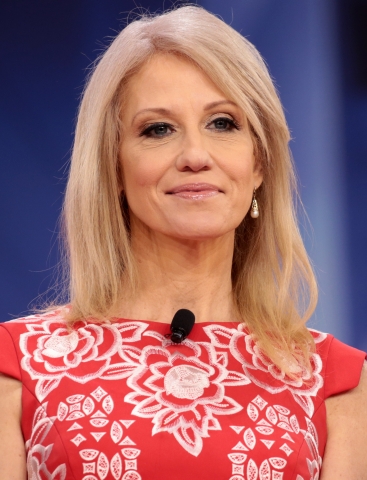Kellyanne Conway and the Hatch Act

- Jacob Sherman
Kellyanne Conway says that she is above the law, a statement the Office of Special Counsel (OSC) roundly rebukes. On June 13, 2019 the Office of the Special Counsel gave President Trump a report that outlined Kellyanne Conway’s alleged violations. Specifically, OCS argues that Kellyanne Conway—during media appearances—violated the Hatch Act.
First introduced in 1939, the Hatch Act was created to limit partisan activities of federal officials. Senator Carl Hatch, a Democrat from New Mexico, introduced the bill after “learning that New Deal–era government programs, specifically the Works Progress Administration, were using federal funds overtly to support Democratic Party candidates in the 1938 elections.” To keep up with the times, the Hatch Act has been amended a few times.
The latest amendment, in 1993, allowed civil servants to participate more in the political process. However, this amendment did not change the core function of the law. Certain federal employees are still prohibited from engaging in political activity “while on duty.” 5 U.S.C. § 7324. The core of the allegations surround activity while Kellyanne Conway was in a Fox News interview.
During these interviews, OCS alleges that Kellyanne Conway commented on 2020 political candidates. These interviews—given in her official capacity—were used to support republican or denigrate democratic candidates in the 2020 election. For example, the report details a Fox News interview on February 1, 2019. In that interview, Ms. Conway details questions she would ask presidential candidate and Senator Cory Booker. Ms. Conway alleged that, if Senator Booker was a Republican, he would be called a sexist. The report goes on to allege several other incidents.
This incident raises interesting questions. For me, the most interesting question is what advisers like Kellyanne Conway can do. Because the act was introduced to cut down on corruption, it is easy to argue that government employees should not be able to use their government position to advocate for future leaders. However, the act currently has an exemption for the President and Vice President. If the President is exempt—presumably because of the political nature of the presidency—perhaps advisers of the president should also be exempt. Advisors to the president, on the other hand, have the privilege of advising the president. They should not also get the privilege of using their position to advocate for who they want to advise next. On the other hand, the President is a unique position. It is only fair that the bully pulpit should be allowed to bully.
Trump, however, has decided against taking the OCS recommendation that Kellyanne Conway should be fired. Regardless of personal opinion surrounding Kellyanne Conway’s actions, Trump, by not firing Kellyanne Conway, is pushing debate around whether officials like Conway should continue to fall under the Hatch Act requirements.
